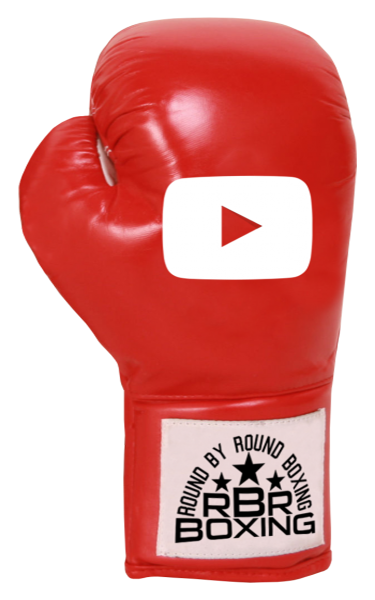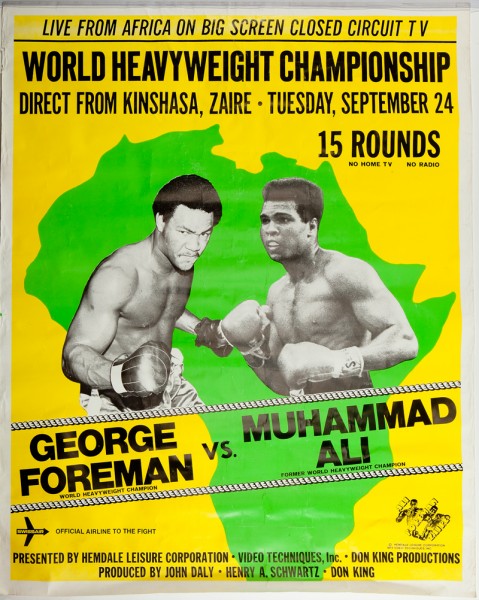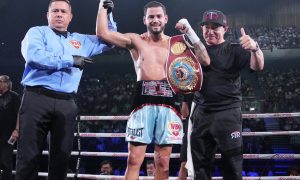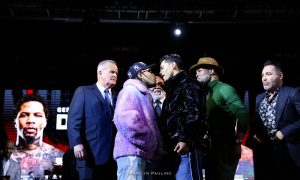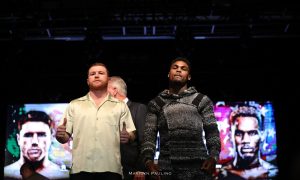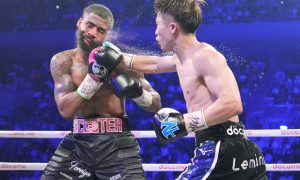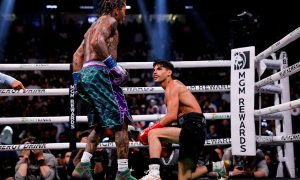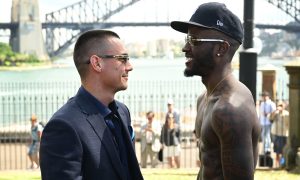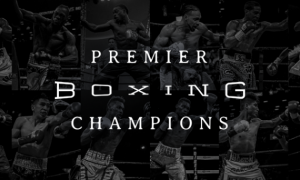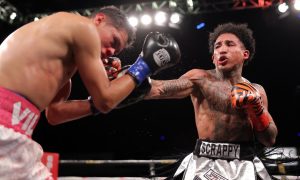While American television audiences enjoyed the premieres of Happy Days, The Rockford Files and Good Times, a massive news story soon captivated the entire country.
On his 2,027th day in the Oval office, President Richard Nixon was prepared to sign one of the more brief yet powerful pieces of paper in history. It was a letter of resignation.
Required by a 1792 Presidential Succession Act, Secretary of State Henry Kissinger brought the single piece of paper to the President. It read, “I hereby resign the Office of President of the United States.”
Facing near certain impeachment, President Nixon signed the document and officially resigned at noon Eastern Time on August 9. Immediately after his resignation, Gerald Ford was sworn in as the 38th President of the United States.
Although the fallout from Watergate was far from over, many looked to regain a slice of normalcy.
As the leaves began to change color in many parts of the country, the Oakland A’s beat the Los Angeles Dodgers in five games to win the World Series. Just weeks later, another title was on the line as Heavyweight champion George Foreman was preparing to face former Heavyweight champion Muhammad Ali.
The year was 1974.
The Heavyweight champion of the world was a machine. A man that was widely feared, he entered the ring like a force of nature butchering world class opponents. He was now being mentioned in the same intimidating breath as his idol, Sonny Liston.
He described himself as “surly and angry” and backed up every bit of it in the ring.
Foreman wasn’t just beating opponents, he was demolishing them. He won the title from Joe Frazier in devastating fashion, issuing six knockdowns inside of two rounds.
With the wrecking ball still swinging, he then faced Ken Norton. Foreman smashed Norton with ease, putting him on the canvas three times in less than five minutes.
As Norton lay motionless on the mat, the champion peered down at ringside where Ali sat with Howard Cosell where they were calling the play by play. Foreman sneered, “I’m going to kill you.” As he described in his book, By George, the fans booed wildly as he then repeated himself louder, “I’m going to kill you.”
The champion, now 25, had the world’s attention. If anything, he now had Ali’s. He obliterated two men who both went the distance with Ali and had beaten him.
Frazier had floored Ali in their first encounter and won a 15 round decision. Norton broke his jaw en route to winning their first battle also via a 15 round decision.
Boxing fans and pundits were left scratching their heads wondering how on earth Ali could beat this force of nature who possessed incredible sledgehammer strength. Others wondered if he could simply survive.
The former champion showed no signs of fear having been here so many times before. He had been in the ring with the best and twice beaten “that big ugly bear” Liston.
Ali had fought 17 times since returning after his three-and-a-half year suspension and layoff. He had lost twice in that time span, against Frazier and Norton, but avenged both losses in the rematch.
Ali, 32, was looking to become only the second fighter, alongside Floyd Patterson, to reclaim the Heavyweight crown.
To secure the match, a new, young promoter named Don King put himself on the map by lining up the fighters and guaranteeing each a staggering $5 million dollars, an unheard of amount of money at the time.
Foreman (40-0, 37 KOs), a 1968 Olympic gold medalist would make his third title defense against the number one contender Ali (44-2, 31 KOs), the 1960 Olympic gold medalist and former Heavyweight champion.
The bout, scheduled for 15 rounds, would be held in Kinshasa, Zaire on September 24.
Both fighters spent several weeks in Africa training and getting acclimated to the climate and their new surroundings. Five days before the fight, Foreman suffered a cut in training, forcing a temporary postponement.
It was promptly rescheduled for October 30.
The bout would be broadcast across the globe on closed-circuit television and was scheduled for approximately 4:00 am local time. Audiences in the United States would pack theaters to witness the bout live at roughly 10:00 pm, EST.
While Foreman lived and trained in seclusion, Ali was often visible, mingling with fans, writers and promoting the fight.
Ali recounted the build-up and how the two traded barbs in his biography, Muhammad Ali, His Life and Times. He claimed to have a new punch, “It’s called the ghetto-whopper. And the reason it’s called the ghetto-whopper is because it’s thrown in the ghetto at three o’clock in the morning.”
Foreman was asked about fighting so early in the morning. “When I was growing up in Houston, I had a lot of fights at three and four in the morning.”
When questioned about talking in the ring, Foreman was blunt, “I never get a chance to talk much in the ring. By the time I begin to know a fellow, it’s over.”
Ali countered with a poem, “You think the world was shocked when Nixon resigned? Wait till I whoop George Foreman’s behind.”
Despite the bluster, Foreman was a 3-1 betting favorite on fight night and many gave Ali little chance of winning.
An estimated 60,000 fans jammed into the Stade du 20 Mai Stadium in the Congo to witness history in the making. The atmosphere was electric and had a festive feel as crowds roared and drums were beating well before the fighters entered the ring.
The early morning air was humid and thick as the temperature hovered around 80 degrees.
The crowd was partisan, cheering for Ali and booing Foreman. Chants could be heard throughout the night, “Ali! Bomaye! Ali! Bomaye!” Translation, Ali, kill him.
“The Colonel” Bob Sheridan was with David Frost, Joe Frazier and NFL great Jim Brown at ringside to call the action.
At the opening bell, Ali came right at the champion and fired a straight right hand that Foreman took on the forehead. He wanted Foreman to know that tonight was going to be different.
In white trunks with black trim, an animated Ali bounced on his toes and fired his left jab. The champion, wearing red trunks with white and blue trim, pursued Ali like a cold assassin.
The early action was furious as Ali showed he was determined to give as good as he was getting. Sheridan was animated as the crowd roared, “The pace is tremendous in Round 1!”
If anything was clear after three minutes, Ali established he was not afraid. In between rounds, Ali pumped his fist in the air as the crowd chanted, “Ali! Ali! Ali!”
Early in the second round, Ali again came right at Foreman then mysteriously backed into the ropes. While Foreman whaled away, Ali leaned back against the ropes to avoid the onslaught.
Ali would then stick his left jab into Foreman’s face and shoot quick, straight right hand leads that snapped the champions head back.
Every time Foreman swung and missed and Ali counted, the crowd reacted, “Ohhhh! Ahhhh!”
In Rounds 3 and 4, the champion continued to try to walk down Ali. The former champion was now talking to Foreman, often whispering in his ear.
The flow of the fight was now becoming more clear, Foreman stalking, Ali establishing what we now know as “rope-a-dope” as he used the ropes to duck and dodge the power of the champion. Brilliantly, as Foreman leaned in, he would pull him forward from the back of the head in an effort to tire him out.
As Ali continued to counter and chip away at Foreman, the champion’s face began to show signs of swelling around his left eye.
Foreman began landing heavily to the body in the fifth. Ali spent much of the round leaning against the ropes with his hands up trying to pot-shot the champion. It looked like he was taking the round off until only 30 seconds remained.
As Foreman wound up to fire a sweeping hook, Ali stepped in and unloaded a sizzling combination that rocked Foreman backwards.
Sheridan screamed over a crowd that was on its feet, “Good, crisp combination by Ali lands to the head! Backs up Foreman! Ali staggered Foreman! Foreman staggered! Foreman hit again! Foreman has been hit three or four times!”
As the round ended and the camera view pulled back, fans at ringside remained on their feet, dancing, cheering, and jumping up and down. They were witnessing what no one had ever seen as Foreman was taking punishment and seemed to have no answers.
Rounds 6 and 7 continued the ebb and flow of the action. Foreman looked to bomb away while Ali countered beautifully, fighting off the ropes, while continuing to whisper in the champions ear.
Foreman would later reveal that Ali continued to ask him, “Is that all you got, George?”
Entering the eighth round, Foreman again came right at Ali desperately trying to change the flow of the fight. The heavy artillery continued to miss its target as Ali’s defense was masterful.
With just 20 seconds remaining in the round, Ali maneuvered himself off the ropes and turned Foreman to his left. As the champion stood next to the ropes, Ali unleashed a furious assault and the champion crashed to the deck in heap.
The champion lay flat on his back.
As the crowd thundered, Sheridan shrieked, “Ali, a sneaky right hand! Foreman! Down! Three…Four… Five…Six…Foreman get’s up to a knee…Seven…That’s it! The fight is stopped!”
Referee Zack Clayton halted the action and the fight ended at 2:58 of Round 8.
Chaos erupted in the ring as it quickly filled with the corners, reporters, and police. The scene was one of utter pandemonium.
Foreman left the ring as Ali continued leading cheers from inside of it.
Moments later from the locker room, Ali held court. “Am I the greatest of all times? Everybody stop talking now! Attention! I told you, all of my critics, I told you all I was the greatest of all time when I beat Sonny Liston. I told you today I’m still the greatest of all time. Never again make me the underdog until I’m about 50 years old. Then you might get me!”
The fight would be named the 1974 “Fight of the Year” and Round 8 would be selected as the “Round of the Year.”
The fight would produce one of the most iconic names in the history of sports, “The Rumble in the Jungle,” and forever link Muhammad Ali and George Foreman.



